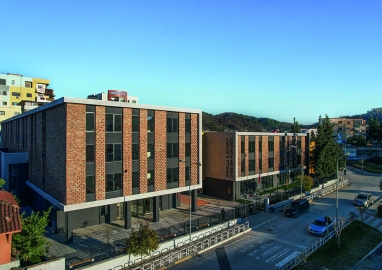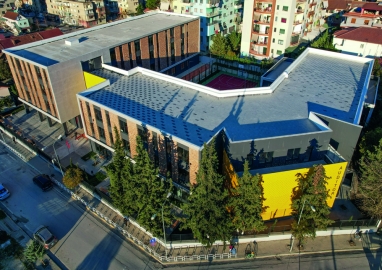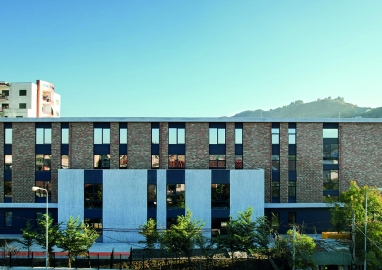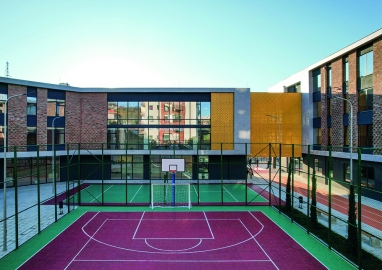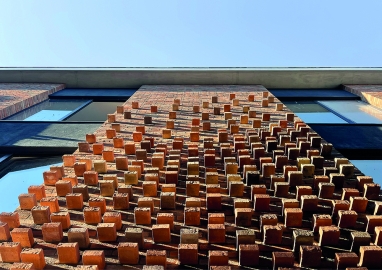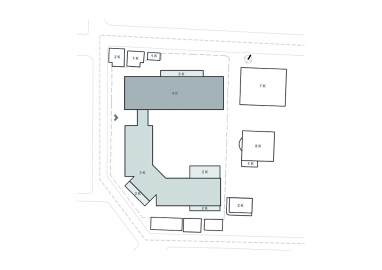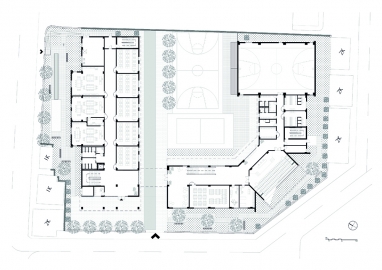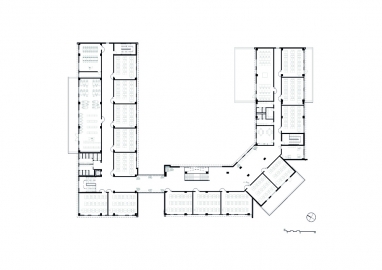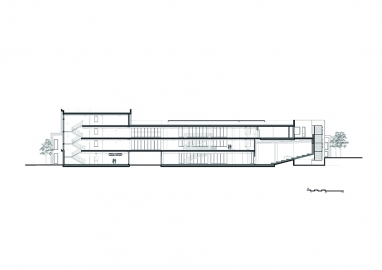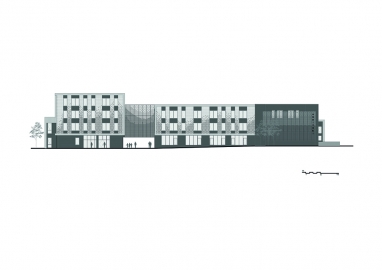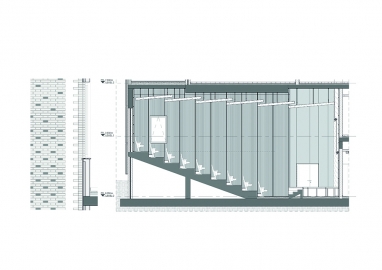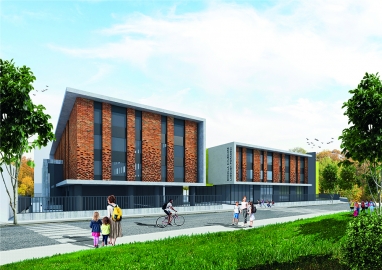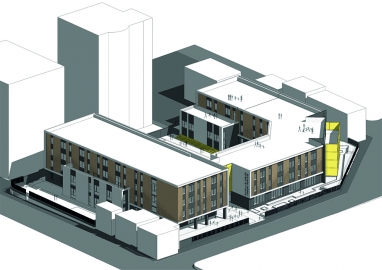''Lasgush Poradeci'' Secondary School, Tirana
The project consisted in the reconstruction of "Lasgush Poradeci" school which was severely damaged by the November 2019 earthquake. The main goal was to design a new school with increased capacity, which would serve not only a larger number of students, but also the entire community with new facilities and public spaces.
The concept design was prepared as a response to the call "Solidarity for earthquake damage", an initiative of the Municipality of Tirana, for contribution to the reconstruction of buildings damaged by the November 2019 earthquake. The initiative was joined by the Qatar Fund for Development, that co-financed the design and construction works of the school. The school is located in Kombinat area, Tirana, Albania and was designed to accommodate 1200 students of both primary and secondary grades. The U-shaped building creates an inner courtyard, which is used for outdoor sports activities such as football, tennis and running, while the rooftops are made accessible to duplicate outdoor recreational areas. Indoor areas include classrooms, eight laboratories, a library, an auditorium with about 180 seats, a multipurpose room, the gym, and administration areas.
The new school was required to be designed to accommodate an increased number of students compared to the old building, to serve the current and future demands of the increasing population in the area of Kombinat, within the same plot area of 5,352m2. Similar to the old school, both primary and secondary grade students would use the building, so the school was divided into two main buildings with separate entrances and connected on the upper floors to provide independent and safe flows of movement for students of different age groups.
The functional and volumetric design solution was based on analysis of the urban and environmental conditions. Also, this scheme realized the creation of as many indoor spaces as possible that use natural light and ventilation for most of the day, ensuring high-level comfort.
The vision of the architectural and urban design is mainly based on preserving the identity of the area where the concept gets its inspiration, integrating the building with nature both functionally and aesthetically.
The architectural concept was triggered by the above requirements as well as by the historical-urban context where the school is positioned, wanting to create a new public building well-integrated with the urban context. The Kombinat area is born as an area with an industrial character, with buildings where the use of red brick and concrete is noticeable.
As a result, the three main materials that dominate the volumetric and facade treatment of the new building are the red brick, concrete, and metal, which integrate the building with the industrial context of the area. The brick modeling on the facade gives this public building a more unique character, by trying to express the dynamism of the school and the student’s movement inside the building, which is strongly emphasized by the “shadow dance” on the façade, created by each protruding brick. The yellow perforated metal panels add a cheerful touch to the overall building, opposing the strong and rigid look of the concrete shells.

